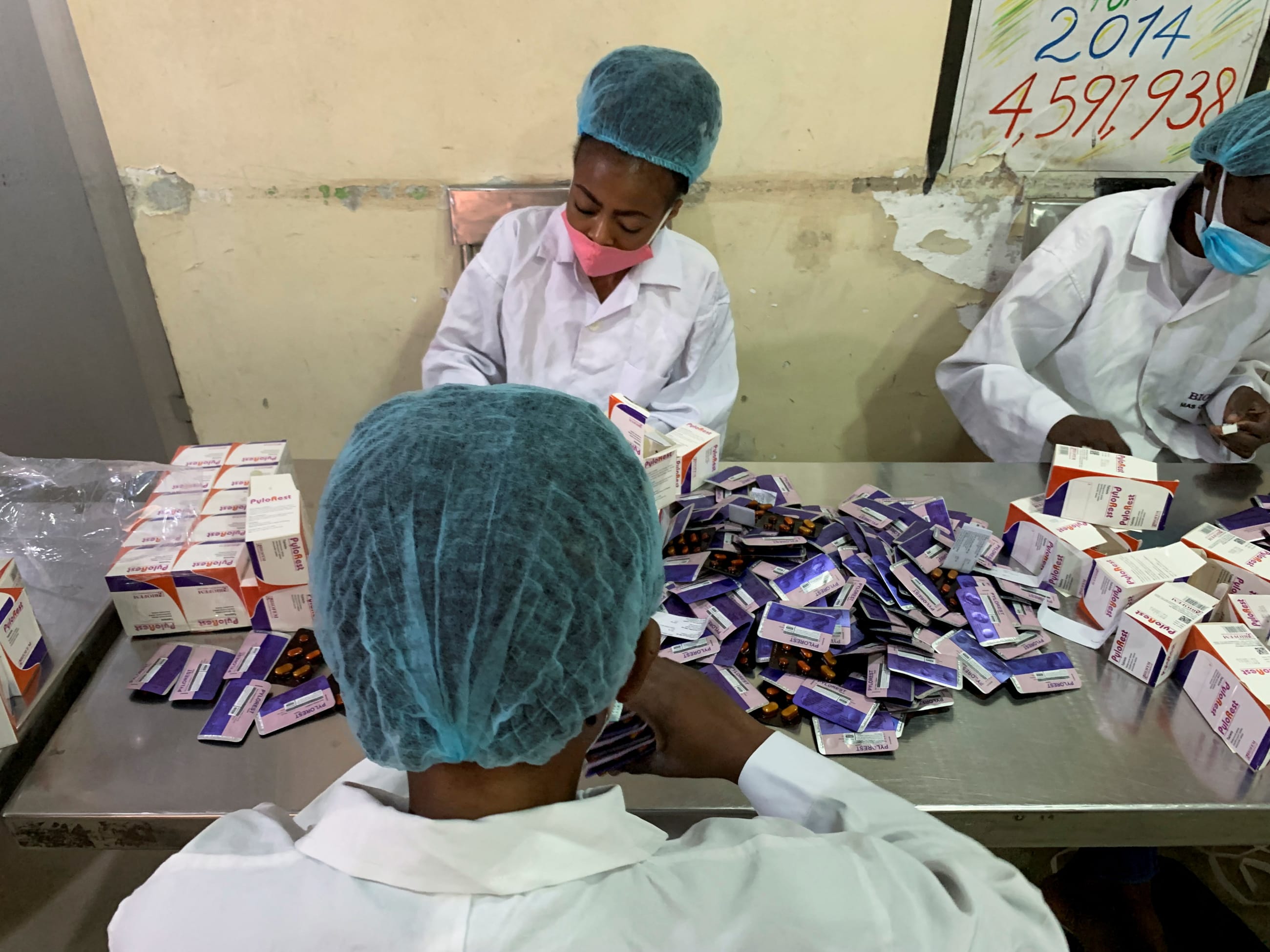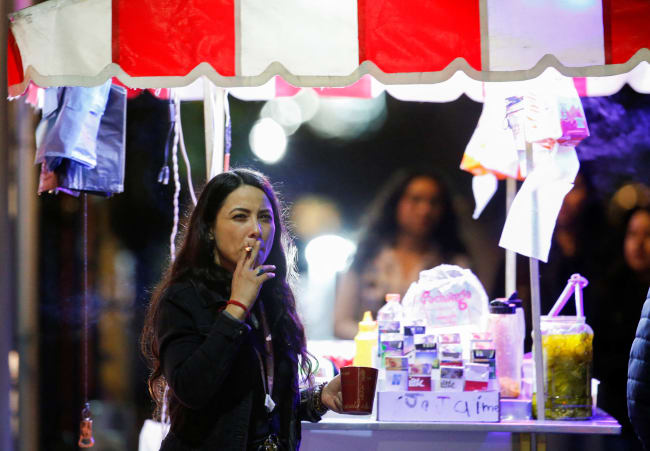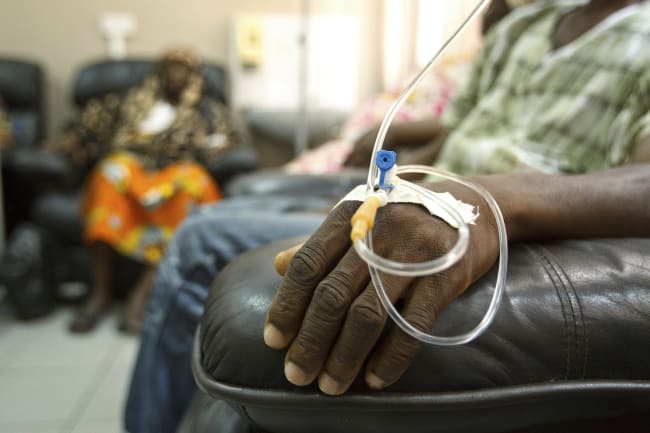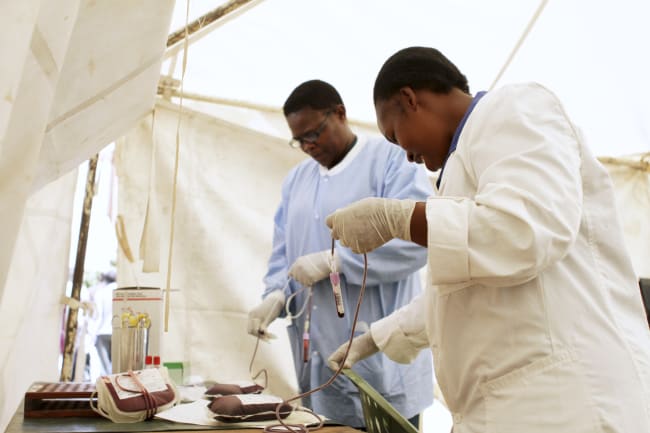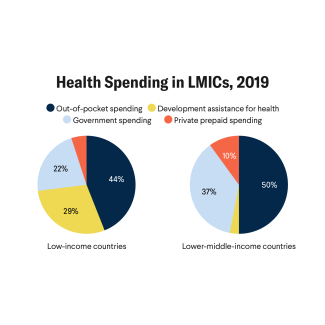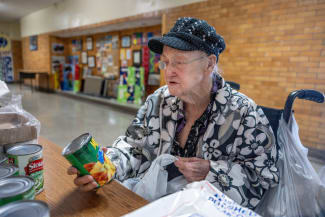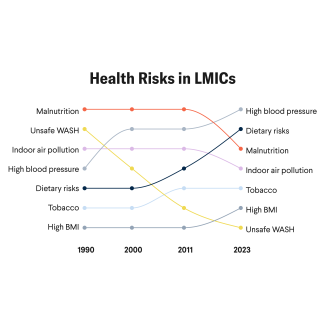In 2020, 23-year-old Temilade Morayo*, a computer trainee from Nigeria's southwestern city of Ibadan, noticed occasional blurry vision in her left eye that grew worse over the course of more than a year.
"As a trainee, I was earning a monthly stipend of 6,000 naira ($3.61), little more than my monthly transportation costs," says Morayo. She and her mother could hardly afford food and household needs, let alone a medical consultation fee or diagnosis.
In January 2022, she finally visited a "chemist"—an informal name for drug merchants with or without medical background who own a drug store at the local market stalls, on the streets, or at strategic neighborhood locations—who prescribed a cheap eye drop for her fading vision.
In Nigeria, health experts are worried about the widespread reported cases of counterfeit and substandard drugs across the country from both local and foreign manufacturers. These drugs are bought by people who either cannot identify fake medical products or are seeking cheaper alternatives to pricey genuine products.
A recent move by two pharma giants—GlaxoSmithKline (GSK) and Sanofi—to end operations in the country has made legitimate medical products even more scarce and expensive. Prices for medical products such as inhalers have now more than doubled in a country where about 10 million people have asthma, driving up demand for fake drugs.
A recent move by two pharma giants—GSK and Sanofi—to end operations in Nigeria has made legitimate medical products even more scarce and expensive
"He told me to put two drops every morning and night," Morayo recalls of her visit to the chemist. "But on the second day, my eye was already feeling irritated and when I woke up on the third day, my left eye was partly shut." She continued to use the eye drops in hopes of recovery.
"When little liquid was left in the bottle, I read the label to check whether I was using the drops wrongly," says Morayo. "I then realized that it had no NAFDAC registration number or expiry date and that the liquid tasted a bit sugary." The National Agency for Food and Drug Administration and Control (NAFDAC) is a federal agency responsible for the regulation and control of drugs, food, cosmetic, and other related products in Nigeria.
Morayo's left eye is now completely shut. She was later diagnosed with acute glaucoma.
"Some weeks after, I went back to the chemist, but he denied selling the eye drops to me," she says. "It was clearly a fake drug."
A Fake Drug Menace
Fake drugs, or substandard medical products, are counterfeit medications either produced at below standard quality or sold as proxies for authentic and effective pharmaceutical brands.
The World Health Organization notes that fake drugs are often packaged by unskilled and unauthorized individuals in unregulated facilities and mostly supplied to low-income countries with weak drug regulations.
A recent study by the UN Office on Drugs and Crime reveals that up to 500,000 people die annually from counterfeit drugs in sub-Saharan Africa. The same report shows as many as 267,000 deaths each year from substandard malaria drugs and up to 169,000 deaths each year from fake antibiotics used to treat pneumonia in children. Between $12 million and $44.7 million is spent each year treating people who have used counterfeit or substandard malaria drugs.
Analysts and medical experts are also deeply concerned about the impact of fake drugs on the health of Nigerians, stressing that counterfeit medications increase deaths from malaria, stroke, hypertension, asthma, cholera, and other illnesses prevalent in the country. Meanwhile, medical workers say that in some cases patients struggle to respond to genuine medications after prior continuous intake of counterfeit antibiotics and medical supplements.
"Counterfeit medical products and equipment frustrate the efforts of Nigerian doctors and other medical and health workers," says Ben Egbo, secretary general of the Nigerian Medical Association. "When an expected recovery of a patient falls short, it challenges their medical expertise and . . . reduces the confidence of the patient in the medical consultant."
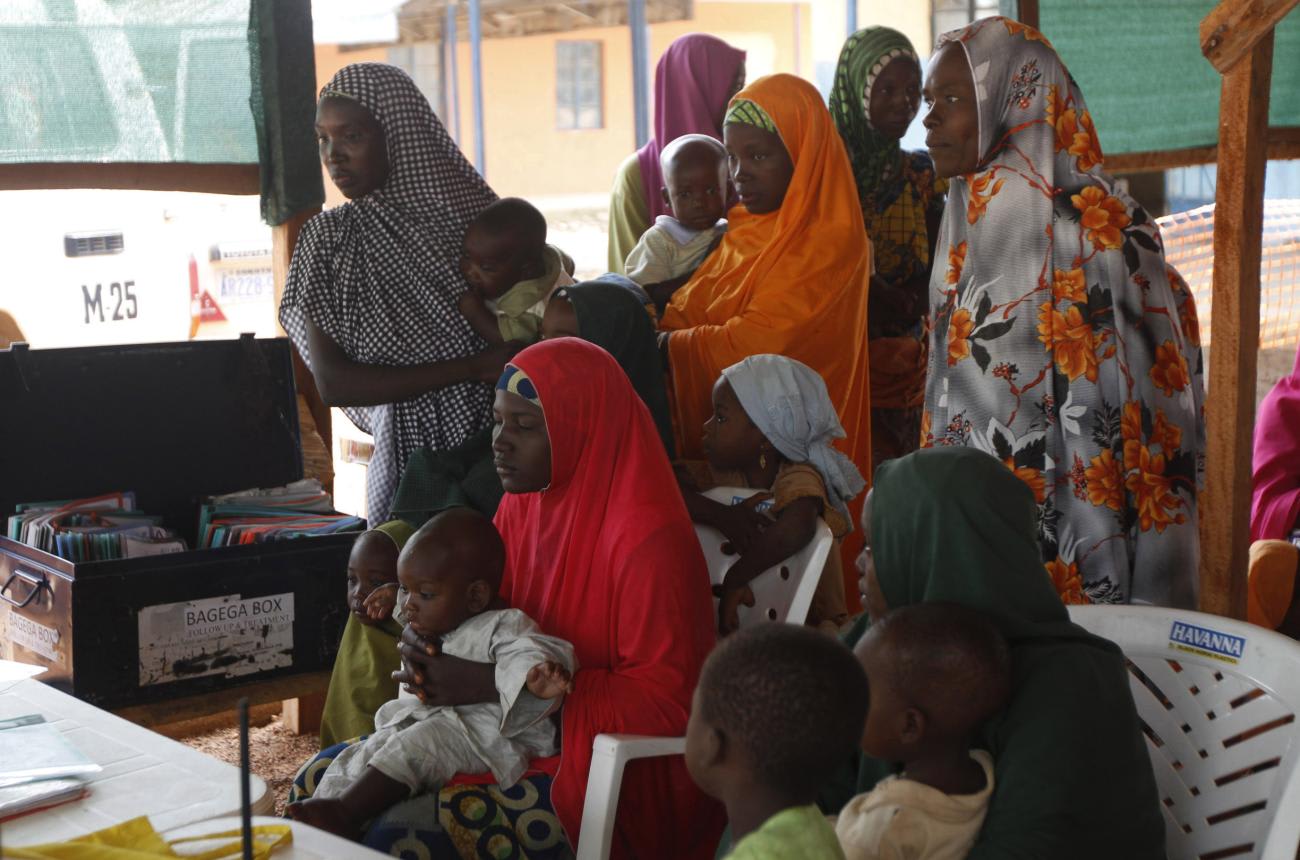
In 2022, amid a reported surge of multiple counterfeit drugs in circulation, the National Primary Healthcare Development Agency, which is charged with primary health welfare delivery under the Federal Ministry of Health, states that about 70% of drugs distributed in the country are substandard or counterfeit.
NAFDAC countered that the country has only 13% to 15% of fake and substandard medicines. Regardless of the issue's true scope, stakeholders in the drug supply chain and pharmacists say in recent years they have had to double their verification on the authenticity of medical products.
"The widespread cases of counterfeit drugs are ruining the reputation of credible pharmacists across the nation—it's a damning situation!" says Okeke Rejoice*, an Abuja-based pharmacist who chose to remain anonymous due to stigma from national drug agencies. "Some pharmacists no longer rely on the drug authentication reports of Nigeria's regulatory agencies."
"Pharmacists are now going as far as sending multiple emails that contain images of label, identity symbols, and laboratory test reports of medicines to foreign pharmaceutical firms to verify the originality of the products," she says.
A Fertile Ground
As the sun set over the bustling market in Bariga, a suburb of Lagos, in June 2024, nearby and distant voices filled the tight spaces of the stalls. At intervals, hawkers, including different drug merchants, keep horn speakers close to their mouths to speak about the potency of their drugs, a usual scene in most Nigerian markets.
One drug hawker in the Bariga market claimed that his "baba wonder super balm" can cure multiple illnesses, including malaria, skin infections, and the sickle cell condition at the price of 500 naira ($0.31). The balm has neither a branded label nor a regulatory approval number, yet a few shoppers patronized him.
About 70% of drugs distributed in Nigeria are substandard or counterfeit
Experts say the economic downturn in Nigeria collides with various heavy disease and illness burdens—about 133 million Nigerians are multidimensionally poor; and a recent New York Times report describes Nigeria's economic state as the "worst in a generation," a crisis that creates a fertile ground for the booming counterfeit and substandard medical products.
"Many Nigerians in the informal sector rely on cheap unapproved local drugs [and] herbal mixtures and relievers to stay alive amid the tough economy," says Oyebanji Paul, president of the Drug Abuse Control and Counseling Club at the University of Ilorin.
"And it's critical for drug [users] who are psychologically attached to these substandard and fake drugs," he says.
Ebun*, a 26-year-old university undergraduate, tells Think Global Health that when she could not afford a Ventolin inhaler and some medical supplements last November, she bought a fairly cheap drug and inhaler in Lagos mainland but it was substandard.
"I was in my hostel when I lost my breath but when I used the inhaler, it was less effective, and I was rushed to the hospital," she says.
Fixing the System
According to Nigerian drug regulators, more than 70% of the drugs consumed in Nigeria are foreign imports, and NAFDAC admitted last February that about half of them are fake. Research from the Economic Community of West African States last September found that India and China are the biggest sources of the illicit medical products that get into West Africa.
"The drug market is a complex global trade," says Gernot Klantschnig, associate professor of international criminology at the School for Policy Studies at the University of Bristol in the United Kingdom. "Eradicating substandard and falsified drugs means Nigeria must deal with it from a global perspective."
"Nigeria must intentionally filter and properly regulate the global supply chain of the medical products that connects to the borders of the country," says Klantschnig.
However, Rejoice, the Abuja-based pharmacist, argued that NAFDAC needs to fix its system. "For several years, the agency has not functioned as it did during the era of former Director-General Dora Akunyili," she says. "I think many Nigerian medical and health agencies have been too politicized, which has led to their relative poor efficiency."
Nigeria's Federal Ministry of Health, NAFDAC, China's Ministry of Health, and India's Ministry of Health and Family Welfare did not respond to requests for comments.
"Quality health care can raise your hopes," says Morayo as she walked into the consultation room of an eye specialist in Ibadan. "Quality health care simply means when medical professionals and quality drugs are available."
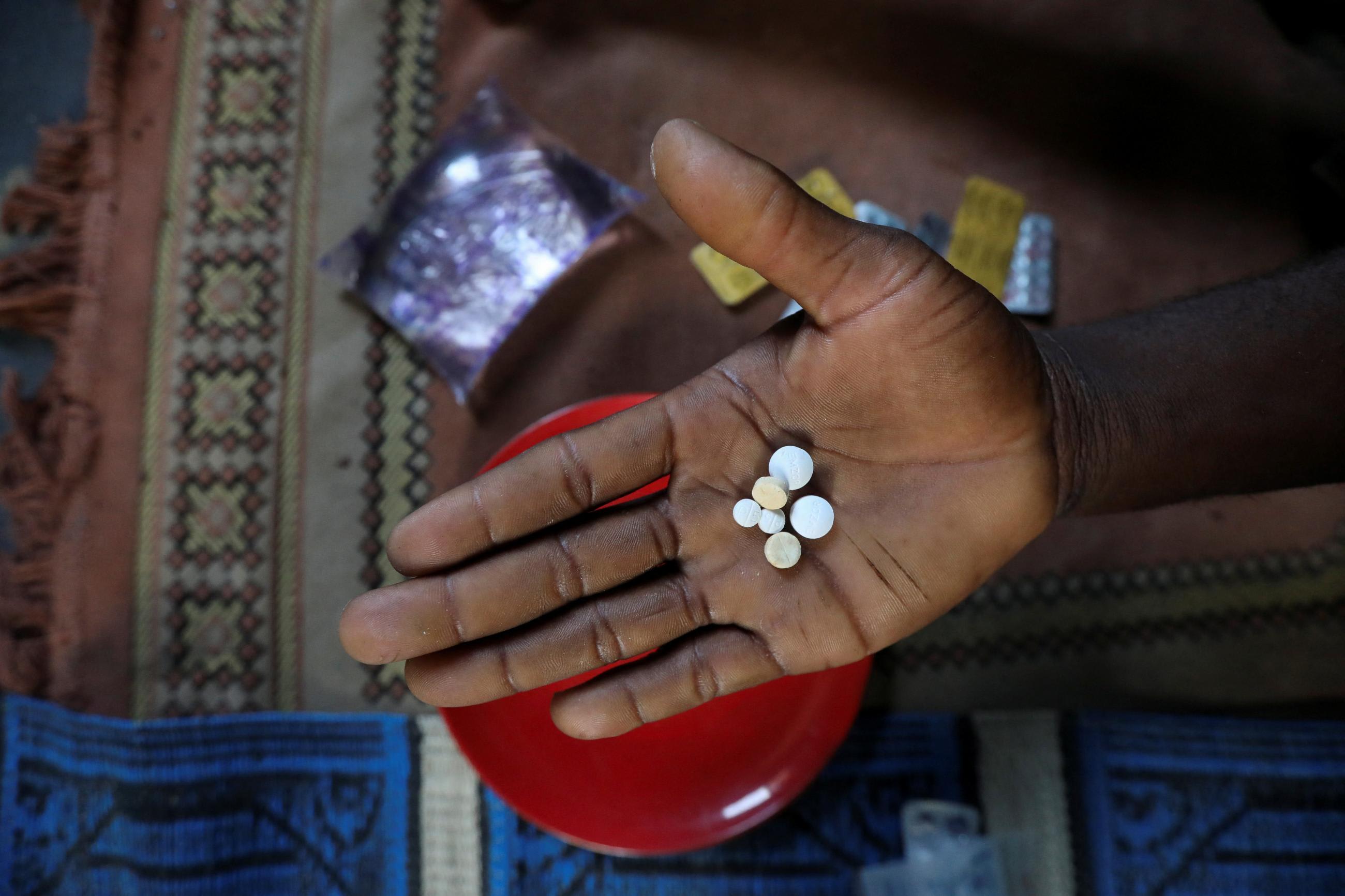
*EDITOR'S NOTE: Names have been changed to protect the identities of those mentioned.
